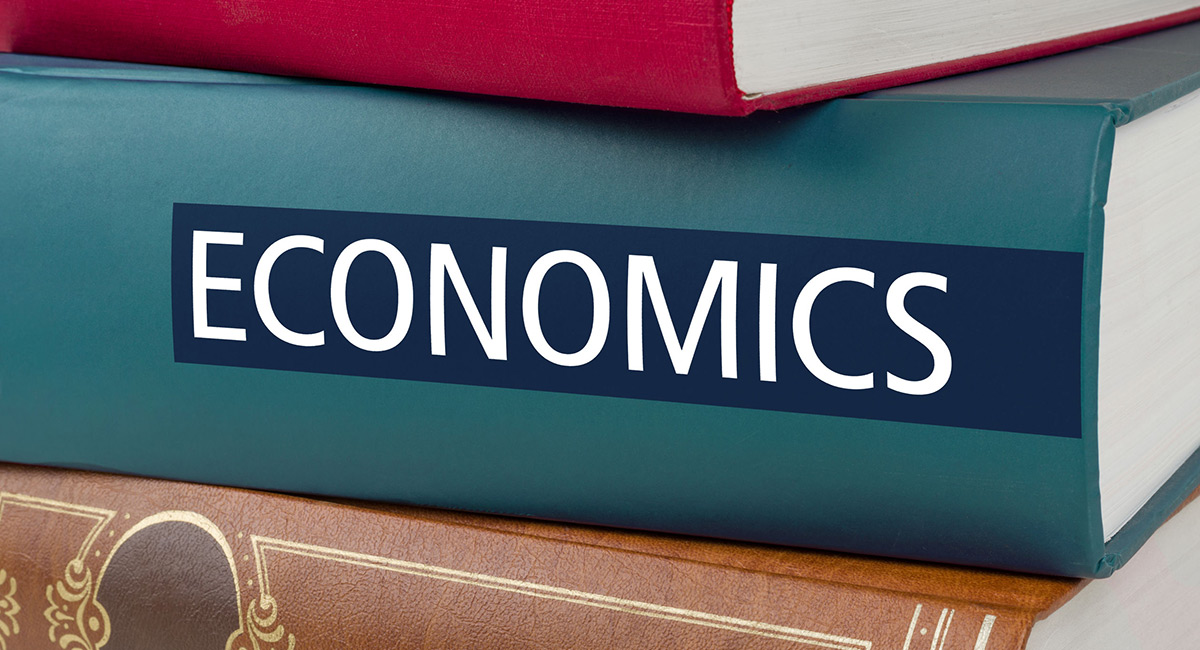William Allen, a professor emeritus of economics at the University of California, Los Angeles died Jan. 15 at 96. Few noted it, but Allen’s death was momentous. It represented a generational shift in the economics profession, one that bodes ill for economists and the public. Allen truly believed in economics—something that is hard to say about most economists these days.
Allen was among the last of a generation of economists who were masters of their craft. He wrote, along with his friend and colleague Armen Alchian, an excellent economics textbook that conveys the power and potential of the economic way of thinking: Despite the complexities of markets, economists can get at the heart of how they work by focusing on prices. This insight is so important, it gives economists’ core tool kit a name: price theory. Nobody can be an economist who is unfamiliar with or uncomfortable using this tool kit.
Yet by this standard, there are not many economists left. Professional economists are abandoning price theory in droves. The new status quo has upended the field. Economics is increasingly less scientific and more susceptible to political influence.
The absence of price theory in today’s economic research would have befuddled the great economists of the past. Contrary to the field’s naysayers, the golden age of 20th-century price theory was never about “neoliberalism” or “market fundamentalism.” Instead, it applied to markets a simple yet brilliant framework that revealed the hidden ways market prices—exchange ratios between goods—facilitated an extraordinary amount of economic coordination. It also showed why many (but not all) restrictions on price adjustments, such as rent controls, resulted in costly and unproductive secondary effects. This was all a part of a broad explanatory project. While individual economists had their policy preferences, the economic way of thinking was above politics.
For years, economics has been getting less theoretical and more empirical. Economists are spending less time building and thinking through simple models, and more time collecting and analyzing data. The “identification revolution” in economics raised the payoff, in the form of elite publications, to finding good data from quasiexperimental settings and conducting advanced statistical analyses. Better empirical work should certainly be applauded. But it came at a cost: an entire cohort of economists with serious theoretical blind spots.
Data doesn’t interpret itself. Contrary to the rallying cry of this new breed of economists, we cannot “just let the data speak for itself.” What and how you measure rely on theoretical judgments about how markets work. The way you understand concepts like competition, barriers to entry, and market power can completely change how you interpret identical data. Is an industry with a small number of high-earning firms oligopolistic due to its concentration? Or is it competitive due to continued customer satisfaction? Price theory helps us make sense of these questions. Going to the data without a strong theoretical grounding is an invitation to confusion.
The heights of the economics profession are increasingly inhabited by people who disdain price theory. Reliance on the economic way of thinking in solving problems is viewed as obsolete and unscientific. The data jockeys think they’re cutting-edge, but they’re merely repeating old mistakes. In the late 19th and early 20th centuries, economists of the German Historical and Old Institutionalist schools thought they could make do with history and statistics alone, unconstrained by theory. In the end, they got so bogged down in details that they came up with very little that lasted.
A common anti-price-theory trope is that its practitioners are political ideologues masquerading as scientists. The opposite is closer to the truth. Old-school economics recognized that trade-offs and constraints are everywhere. There are no free lunches. Armed with price theory, economists resisted the politically appealing but economically unsound proposals of both the right and left. Today’s economists, innocent of price theory, have no such armor.
The atheoretical approach of contemporary economists makes them particularly susceptible to the technocratic pretensions of the center-left. If, contrary to the claims of price theory, there are no enduring laws of economics, then there is no reason to stop the technocrats from tinkering. Many of these economists don’t realize they have been politically compromised. They see it as “just the facts, ma’am” pragmatism. In reality, it is ideology sneaking in through the back door.
As an example, consider the corporate tax cut debate of 2017. At issue was whether labor or capital would benefit from the cut. Price-theoretic economists such as Greg Mankiw, Casey Mulligan and Steve Landsburg predicted big benefits for workers. Empirical pragmatists such as Gabriel Zucman, Emmanuel Saez and Larry Summers thought this prediction was not only unscientific but borderline dishonest.
As it turns out, Team Price Theory was right: Workers saw large wage increases after the corporate tax cut. Because capital adjusts over time in response to tax hikes, labor is left bearing the brunt of the reduction in productivity. But the reverse is true, too: Cut taxes on capital, and labor will gain big. The long-run adjustability of capital is a classic price-theoretic result. Score one for the old school.
While the divergence between price theory and pragmatism is obvious in policy debates, policy isn’t the biggest issue here. What the government should or shouldn’t do is a value judgment. An economist could agree with Messrs. Mankiw, Mulligan and Landsburg about the growth effects of corporate tax cuts but oppose them on deficit grounds, for example. Nevertheless, that the supposedly ideological and unrigorous economists came out on top in this kerfuffle shows that by scientific standards—intelligibility and predictability—price theory still matters.
To fix economics, economists must again insist on the primacy of price theory. The economic way of thinking is not optional. Nor is it an impediment to social science. In fact, price theory is the only thing that makes social science possible. William Allen has left us, but what is dead may never die: We still have his articles and books, as well as those by his friends and colleagues. Whatever the fads among economists, the enduring contribution of economics to human knowledge is and always will be price theory.








